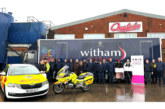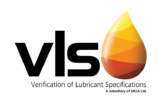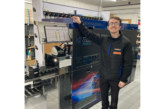
The automotive aftermarket has been urged to embrace the opportunities brought about by digitalisation in the latest session of the Automotive Aftermarket Webinar Series by Automechanika.
The webinar gave stage to a panel of industry professionals, including Dr Julia Saini, Associate Partner at Frost and Sullivan, Andrew Rowson, Co-founder and Head of Services at ecommotors, and Peter Lawton, Senior Section Manager at SMMT.
Julia kickstarted the proceedings by sharing key trends and forces that have shaped the automotive business ecosystem over the past few months.
With mobility requirements changing worldwide, the aftermarket has not been immune to the changes brought about by the pandemic. However, non-driving behaviour has reportedly affected the industry the most, with there being a prominent change in the way business is being carried out.
Julia noted there had been a surge in digitalisation in the sale of parts, services offered to customers, retail opportunities and collaboration between the supply chain.
Covid-19 has reportedly forced companies to push business models that were not the main focus beforehand. This was supported by a poll taken throughout the course of the webinar, showing that 70% of respondents had invested in new digital technology over the past few months.
New demands were said to include: considering customer safety and wellbeing; contactless delivery in e-commerce parts and delivery; an online marketplace for booking parts; embracing the hygiene car care market such as cabin filters and vehicle sanitisation products; and on demand service models for mobile mechanics and parts including tyres, batteries and fuel.
This is said to provide the aftermarket with an opportunity to invest, especially as digital adoption is set to grow globally at 1.5 times the pace in 2020 as compared to other years.
It was also noted that there had been increased activity on digital platforms, with a huge uptake in online touch points in a customer’s journey for replacement parts and automotive on-demand services such as mobile mechanics.
Julia said: “All of these changes will lead to a dramatic increase in opportunities. Disruptions will shape the aftermarket going forward and future vehicles will not be repaired but managed as digitalisation produces data that allows companies to plan ahead and prepare accordingly.”
In an industry panel, Julia, Andrew and Peter then discussed the practical steps needed to realise the benefits of digitalisation, urging the aftermarket to recognise that demands and relationships have changed as people reportedly want convenience and accessibility more than ever before.
A second poll asked whether the industry needed to up-skill to embrace digitalisation, with 91% of respondents believing it does.
Andrew then spoke about embracing the inevitable and that companies needed to have the appropriate logistics in place to service customer demand efficiently. Peter subsequently encouraged the sector to up-skill and train at any given opportunity, as well as tapping into resources to capitalise on the available talent pool.
A final poll asked viewers whether they would increase spend on digital products and services, with 95% answering yes.
Viewers were then given the opportunity to partake in a Q&A session, with the panel providing a balanced dialogue, discussing how to protect against a second or third wave of coronavirus, managing prices in a competitive market, and any changes to the route to market.
For those who were unable to attend the webinar, the live session has been recorded and is available here on-demand.







